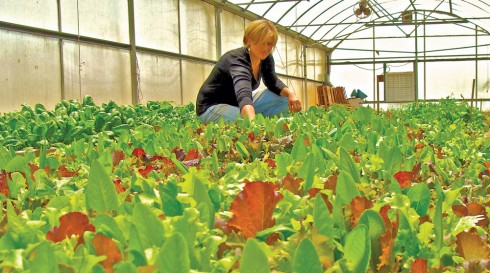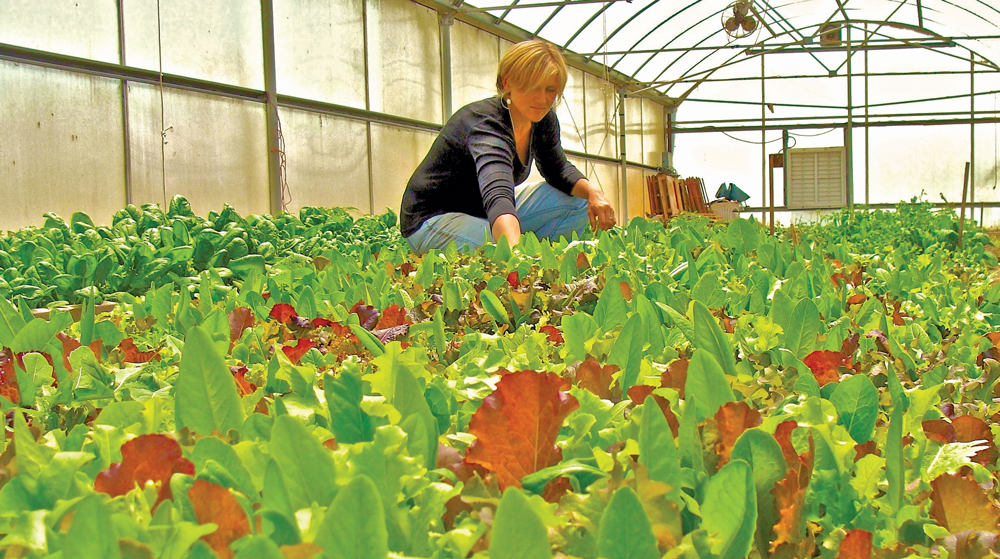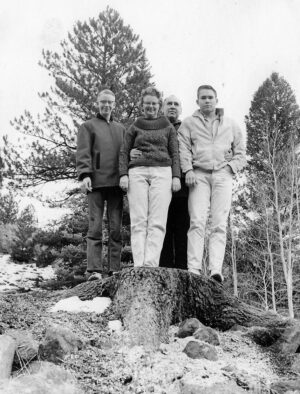By Hal Walter
My summer job is winding down, and, wow, has it been interesting, maybe even meaningful. Perhaps even important.
I’ve working on a collection of articles, published in a series of three newsletters called “The Farm Beet,” about a group of independent farmers, all of them located on the banks of the Arkansas River or its tributaries, and the local restaurants, stores and food institutions that serve up their foods.

The fact that “a river runs through it” should not be overlooked, as without water from the Arkansas River most if not all of these farms would not be in operation. They use either irrigation water directly from the river, municipal water from the river, or adjudicated wells linked to the river. The Arkansas is the lifeblood of these farms.
The Arkansas Valley Organic Growers is a co-op of these seven farms. All of them use organic farming methods, but only one of them is certified organic by the USDA. The concept is that in the semi-arid West local food can be defined by the watershed. AVOG sells its foods to a number of area restaurants ranging from Bingo Burger in Pueblo to the world-famous Broadmoor Resort in Colorado Springs. They even mix it up with industrial-strength food service – Bon Appetit management company is one of AVOG’s top buyers, serving up the farms’ fresh produce in eateries at Colorado College.
Most of these farms also have community supported agriculture (CSA) programs and sell directly to consumers through farm stands and area farmers markets. They have found the best market in this foodshed to be Colorado Springs.
I visited Javernick Family Farms in Cañon City, where Beki Javernick, who grew up part-time in Westcliffe, grows a wide variety of vegetables both outdoors and in her 4,000-square-foot greenhouse. I toured Country Roots Farm on the outskirts of Pueblo where Ryan and Betsy Morris grow similar crops.
Out at Hobbs Family Farm in Avondale garlic is king, but organic vegetable seeds and vegetables take a close second. And at Venetucci Farm in Colorado Springs, a former pumpkin farm, Susan Gordon and Patrick Hamilton now raise vegetables and meat animals in what may be the largest urban farm in the nation.
On the banks of Fountain Creek, a major tributary to the Arkansas, Jay Frost has found a way to stave off suburban sprawl through a variety of farming ventures and conservation easements that tie water to the land. Marcy Nameth raises vegetables, berries and poultry with her sons on her farm near Fowler.
And finally, my old friends Kim and Doug Wiley are literally farming grass – and turning it into raw milk, natural beef, pastured pork, free-range eggs and some of the tastiest vegetables on the planet at their biodiverse and biodynamic farm near Avondale.
One of my final interviews for this series was with Mike Callicrate, owner of Ranch Foods Direct and an outspoken advocate of small agricultural enterprises. He’s the guy people dial up when they’re making a film like “Food, Inc.” His stores in Colorado Springs and Denver offer shoppers the opportunity buy from farmers and ranchers with the convenience of a small grocery. It’s a business model we need more of.
It was Mike who really spelled out the importance of what these farmers are doing. You see, our economic and political systems are broken. Sold out. And a big part of it is about food. Don’t believe me? You can live quite a while without gasoline. Try going without food.
You may think your vote at the poll counts, but the big corporate interests that really run this country are all about food. It’s no secret that a half-dozen big corporations control almost the entire food system. And this Dietary Industrial Complex is working hard to gain an even bigger share through its powerful lobby and by driving food prices down so small local farms cannot compete.
Meanwhile, the price of cattle has reached record highs, making it attractive for many smaller ranchers to simply sell out. The overall effect is that small farms and ranches are disappearing at an alarming rate. One group says we’re losing 1,000 ranches per month. Oddly, these sky-high beef prices have not trickled down to the grocery store. Yet.
There are still more cows than people in Central Colorado, but finding some locally raised beef may take some effort beyond going to a big grocery. It’s worth the extra energy.
“What we support prospers, what we feed grows” is a mantra for Callicrate. He says the result of most people shopping for the lowest price on food at big retail chains is predictable – feeding the factory-food beast leads to an erosion of good jobs, small businesses and ultimately the community.
“Aggressive price shopping is so contrary to our own well-being,” says Callicrate, who can rattle off a litany of facts and figures about the effects of food industrialization and globalization, lost ranches and livelihoods, shrinking equity for producers, and the resulting untold havoc wreaked on communities, the environment, our health-care system and the entire economy.
“The answer to all of these problems is in the community,” he says. “Go back to the community, buy their stuff, support them. When they tell you they want a dollar for an apple, give them two dollars.”
The irony is that something you do several times daily – eating – may have more effect than any ballot you’ll fill out at the polls. For whomever you elect to office is likely to continue carrying out the business of big business unless something changes.
Start by voting with your fork. Every dollar you don’t spend with big food is one dollar that doesn’t feed the beast, and instead nurtures both your community and yourself.
The Farm Beet may be viewed on Hal’s blog at http://hardscrabbletimes.files.wordpress.com/2011/08/farmbeetaugust.pdf




